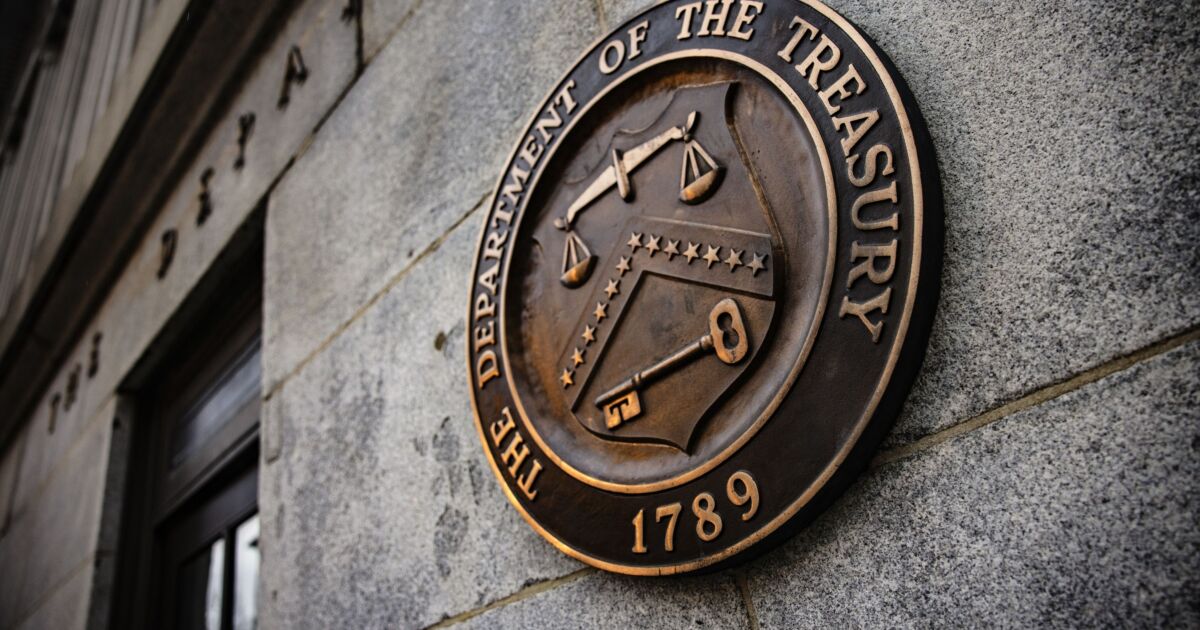The Treasury Department’s Financial Crimes Enforcement Network has extended the deadline for beneficial ownership information reporting after an injunction was lifted by a federal appeals court.
On Monday, the U.S. Court of Appeals for the Fifth Circuit granted a stay of a preliminary injunction by a federal district court in Texas that had temporarily paused a requirement for filing BOI reports with FinCEN under the Corporate Transparency Act of 2019 in the case of Texas Top Cop Shop, Inc. v. Garland earlier this month. That means most companies are once again subject to the requirement for reporting their true owners to FinCEN, except for members of the National Small Business Association, which had won an earlier lawsuit over the requirement. The law aims to deter criminals from using shell companies for illicit purposes such as money laundering and terrorism financing.
However, after all the legal back and forth, the Treasury Department announced an extension of time for businesses to file to meet the reporting deadline.Reporting companies that were created or registered prior to Jan. 1, 2024 have until Jan. 13, 2025 to file their initial beneficial ownership information reports with FinCEN. (These companies would otherwise have been required to report by Jan. 1, 2025.)
Reporting companies created or registered in the U.S. on or after Sept. 4, 2024 that had a filing deadline between Dec. 3, 2024 and Dec. 23, 2024 have until Jan. 13, 2025 to file their initial beneficial ownership information reports with FinCEN.
Reporting companies created or registered in the U.S. on or after Dec. 3, 2024 and on or before Dec. 23, 2024 have an additional 21 days from their original filing deadline to file their initial beneficial ownership information reports with FinCEN.
Reporting companies that qualify for disaster relief may have extended deadlines that fall beyond Jan. 13, 2025. These companies should abide by whichever deadline falls later.
Reporting companies that are created or registered in the U.S. on or after Jan. 1, 2025 have 30 days to file their initial beneficial ownership information reports with FinCEN after receiving actual or public notice that their creation or registration is effective.
However, there’s an exception for members of the National Small Business Association, FinCEN noted: “As indicated in the alert titled “Notice Regarding National Small Business United v. Yellen, No. 5:22-cv-01448 (N.D. Ala.)“, Plaintiffs in National Small Business United v. Yellen, No. 5:22-cv-01448 (N.D. Ala.)—namely, Isaac Winkles, reporting companies for which Isaac Winkles is the beneficial owner or applicant, the National Small Business Association, and members of the National Small Business Association (as of March 1, 2024)—are not currently required to report their beneficial ownership information to FinCEN at this time.”
FinCEN also provided some background on the lawsuit, pointing out that Tuesday, Dec. 3, 2024, in the case of Texas Top Cop Shop, Inc., et al. v. Garland, et al., No. 4:24-cv-00478 (E.D. Tex.), the U.S. District Court for the Eastern District of Texas, Sherman Division, issued an order granting a nationwide preliminary injunction. On Dec. 23, 2024, the U.S. Court of Appeals for the Fifth Circuit granted a stay of the district court’s preliminary injunction enjoining the Corporate Transparency Act entered in the case of Texas Top Cop Shop, Inc. v. Garland, pending the outcome of the Department of the Treasury’s ongoing appeal of the district court’s order. It pointed out that the Texas Top Cop Shop case is only one of several cases that have challenged the CTA pending before courts around the country. Several district courts have denied requests to enjoin the CTA, ruling in favor of the Treasury Department.
“The government continues to believe—consistent with the conclusions of the U.S. District Courts for the Eastern District of Virginia and the District of Oregon—that the CTA is constitutional,” said FinCEN. “For that reason, the Department of Justice, on behalf of the Department of the Treasury, filed a Notice of Appeal on December 5, 2024 and separately sought a stay of the injunction pending that appeal with the district court and the U.S. Court of Appeals for the Fifth Circuit.”
However, that may change next year when the Trump administration takes office given the deregulation promised on the campaign trail. The American Institute of CPAs has advocated for extending the reporting deadline. A provision for delaying the deadline had been included in one of the continuing resolutions to keep the government open, but the version that ultimately passed in Congress over the weekend omitted it.


 Blog Post1 week ago
Blog Post1 week ago
 Economics1 week ago
Economics1 week ago
 Finance1 week ago
Finance1 week ago
 Accounting1 week ago
Accounting1 week ago
 Personal Finance1 week ago
Personal Finance1 week ago
 Accounting1 week ago
Accounting1 week ago
 Economics1 week ago
Economics1 week ago
 Personal Finance6 days ago
Personal Finance6 days ago













